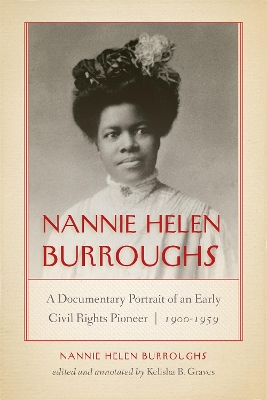African American Intellectual Heritage
1 total work
Nannie Helen Burroughs (1879–1961) is just one of the many African American intellectuals whose work has been long excluded from the literary canon. In her time, Burroughs was a celebrated African American (or, in her era, a "race woman") female activist, educator, and intellectual. This book represents a landmark contribution to the African American intellectual historical project by allowing readers to experience Burroughs in her own words. This anthology of her works written between 1900 and 1959 encapsulates Burroughs' work as a theologian, philosopher, activist, educator, intellectual, and evangelist, as well as the myriad of ways that her career resisted definition. Burroughs rubbed elbows with such African American historical icons as W. E. B. DuBois, Booker T. Washington, Anna Julia Cooper, Mary Church Terrell, and Mary McLeod Bethune, and these interactions represent much of the existing, easily available literature on Burroughs' life. This book aims to spark a conversation surrounding Burroughs' life and work by making available her own tracts on God, sin, the intersections of church and society, black womanhood, education, and social justice. Moreover, the volume is an important piece of the growing movement toward excavating African American intellectual and philosophical thought and reformulating the literary canon to bring a diverse array of voices to the table.
